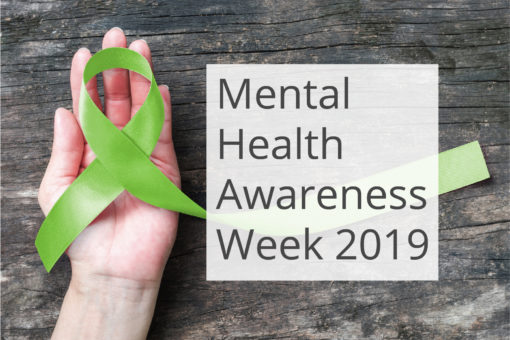Mental illness is a physical illness of the brain that causes disturbances in thinking, behavior, energy or emotion that make it difficult to cope with the ordinary demands of life. Research is starting to uncover the complicated causes of these diseases, which can include genetics, brain chemistry, brain structure, past trauma and/or having another medical condition, such as diabetes. May is mental health awareness months where large mental health advocacy organizations come together to raise awareness regarding mental health and stigma associated with this illness. This year’s theme stems from 2018’s theme of #4Mind4Body as mental health experts and advocates alike are joining forces to expand on other aspects that help improve mental health disorders and how chronic physical illnesses such as heart disease and diabetes contribute largely to mental illness.
Traditional mental health treatment
Depending on the specific mental health disorder, first-line conventional treatment consists of medication combined with psychotherapy approaches. Medications range from anti-depressants, anxiolytics, and antipsychotics to sleep aids and psychotherapy differs from cognitive behavioral therapy, family therapy and interpersonal therapy to trauma-informed care and eye movement desensitization and reprocessing (EMDR). Although many of these treatment approaches are evidence-based and do improve signs and symptoms associated with the specific diagnosis; other non-traditional treatment approaches can be combined with these traditional treatments. If an individual’s lifestyle and relationships are toxic or if the individual is overcome with an insurmountable amount of stress; it may be difficult for any medication or psychotherapy approach to affect their mental illness.
Four lifestyle changes that can improve your mental health
- Healthy relationships: Co-workers, friends and romantic partners all play a huge role in your life, and their attitudes towards you and how they treat you can either be damaging or uplifting to your overall mental well-being. Create and keep relationships that serve you and eliminate any relationships from your life that hurt you.
- Eat, sleep and exercise: Your diet, sleep cycle and moving your body can all play a massive role in your mood and can contribute to your mental well being in both positive and negative manners. It is crucial for your mental well being to get at least 6 hours of uninterrupted sleep each night and to keep the same sleep and wake times during the week and weekends and throughout the year. Eating a balanced nutritious diet is not only good for the body but it is also good for the soul and feeding your body with vitamins and minerals can improve your mood. Exercising multiple times a week and enjoying it at the same time can boost your energy levels and your mood.
- Laughter: Laughter is known to strengthen social connections, decrease stress levels, relieve muscle tension, and energize one’s mood. Incorporating laughter into your day can improve your overall well-being. Laughter therapy has been increasingly popular as a way to boost mood and improve health.
- Hobbies: As adults, we work, take care of the house, and repeat this cycle without allowing ourselves to have fun, and incorporate hobbies and passions into our life. Adopting a passion or hobby can enable us to escape from the standard everyday patterns while flexing our creativity and imagination. Learning new things improves our cognition and can bring us a new sense of fulfillment.
